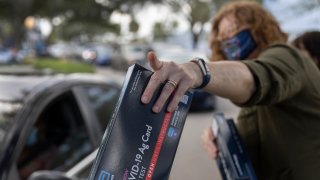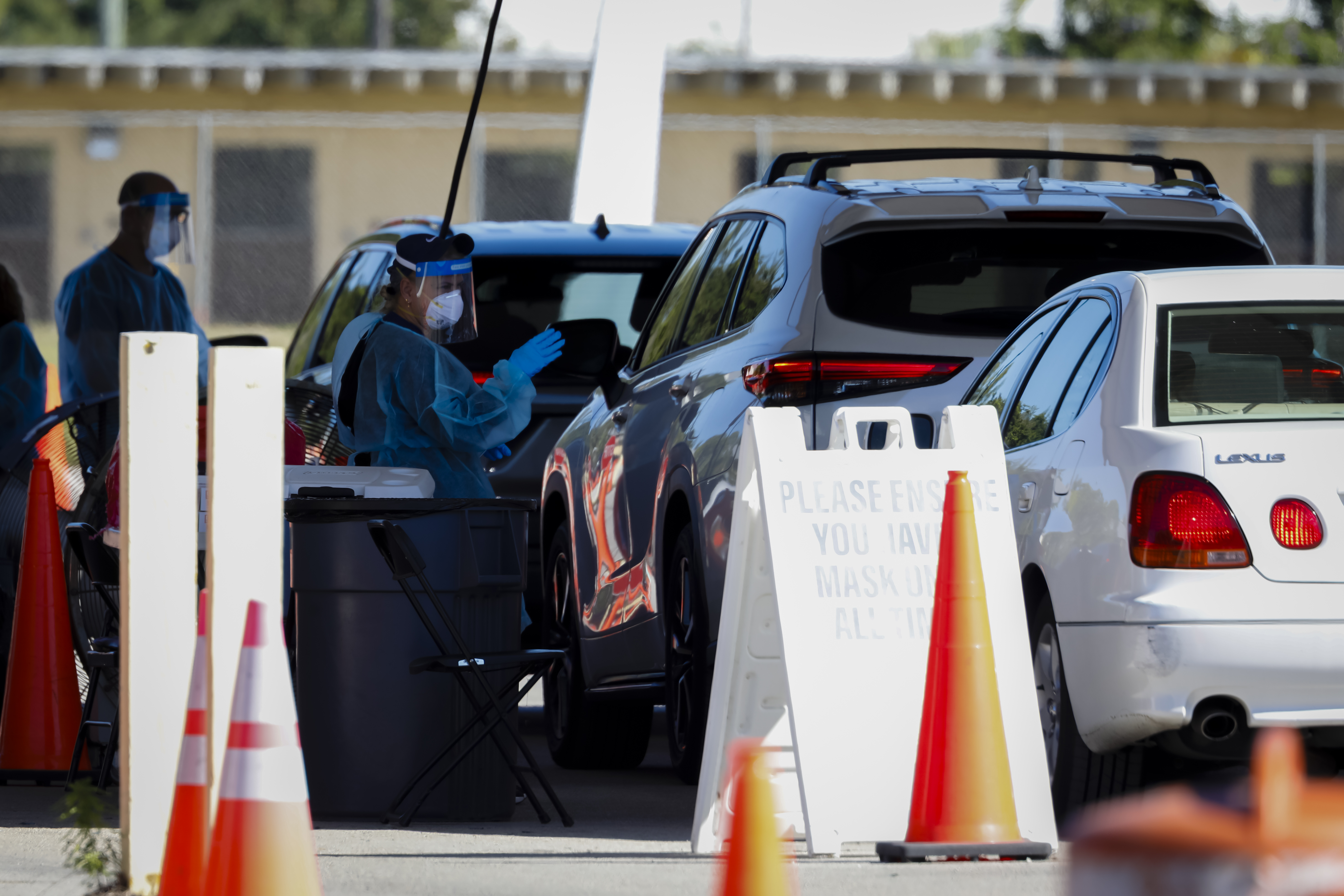
Starting Saturday, private health insurers will be required to cover up to eight home COVID-19 tests per month for people on their plans. The Biden administration announced the change Monday as it looks to lower costs and make testing for the virus more convenient amid rising frustrations.
Under the new policy, first detailed to the AP, Americans will be able to either purchase home testing kits for free under their insurance or submit receipts for the tests for reimbursement, up to the monthly per-person limit. A family of four, for instance, could be reimbursed for up to 32 tests per month. PCR tests and rapid tests ordered or administered by a health provider will continue to be fully covered by insurance with no limit.
President Joe Biden faced criticism over the holiday season for a shortage of at-home rapid tests as Americans traveled to see family amid the surge in cases from the more transmissible omicron variant. Now the administration is working to make COVID-19 home tests more accessible, both by increasing supply and bringing down costs.
Coronavirus Pandemic Coverage:
Get top local stories in Philly delivered to you every morning. >Sign up for NBC Philadelphia's News Headlines newsletter.
Later this month, the federal government will launch a website to begin making 500 million at-home COVID-19 tests available via mail. The administration also is scaling up emergency rapid-testing sites in areas experiencing the greatest surges in cases.
The insurer-covered testing would dramatically reduce costs for many Americans, and the administration hopes that by easing a barrier to more regular at-home testing, it can help slow the spread of the virus, get kids back into school more quickly and help people gather safely.
“This is all part of our overall strategy to ramp up access to easy-to-use, at-home tests at no cost,” Health and Human Services Secretary Xavier Becerra said in a statement. “By requiring private health plans to cover people’s at-home tests, we are further expanding Americans’ ability to get tests for free when they need them.”
Biden announced the federal requirement late last year, and it kicks in on Jan. 15, but the administration had been silent until now on details of the plan.
The administration is trying to incentivize private insurers to cover the tests up-front and without a cumbersome reimbursement process. Insurance plans that work with pharmacies and retailers to cover the up-front costs of the tests will be required to reimburse only up to $12 per test if purchased through an out-of-network retailer. Plans that don't move proactively to set up a network of pharmacies would have to cover the full retail price that the customer paid — which could be more than $12 per test.
The two main health insurance industry groups said insurers would carry out the administration’s order, but cautioned consumers it won’t be as easy as flipping a switch.
“Health insurance providers will work as quickly as possible to implement this guidance in ways that limit consumer confusion and challenges,” Matt Eyles, president of America’s Health Insurance Plans, said in a statement. “While there will likely be some hiccups in early days, we will work with the administration to swiftly address issues as they arise.”
The Blue Cross Blue Shield Association had a more direct response. “We are concerned that the policy does not solve for the limited supply of tests in the country and could cause additional consumer friction as insurers stand up a program in just four days’ time,” Kim Keck, the group's president, said in a statement.
Both groups said they support provisions in the Biden administration plan to counteract potential price gouging on tests.
Only tests purchased on or after Jan. 15 will be required to be reimbursed, the administration said. Some insurers may choose to cover the costs of at-home tests purchased earlier, but they won't have to.
Mina Bressler, a mother of two and a therapist in San Mateo, California, was able to buy rapid test kits online and shared some with a parent who works in the service industry and doesn’t have time to “sit at her computer every hour refreshing the Walmart page to see when tests are in stock.”
“I gave her some and her kids went to school. That’s one time and there’s a million of her,” Bressler said.
“Just like vaccines becoming available really shone a light on the inequity of what’s going on in this pandemic, I think testing is the new flashlight for that because who’s going online stalking Walmart? It’s not the most vulnerable people in the county,” Bressler added.
Americans on Medicare won't be able to get tests reimbursed through the federal insurance plan, but Medicaid and Children’s Health Insurance Program plans are required to cover the cost of at-home tests fully. Those who are not on a covered insurance plan can receive free tests through the forthcoming federal website or from some local community centers and pharmacies.
AP writer Terry Tang in Phoenix contributed.



